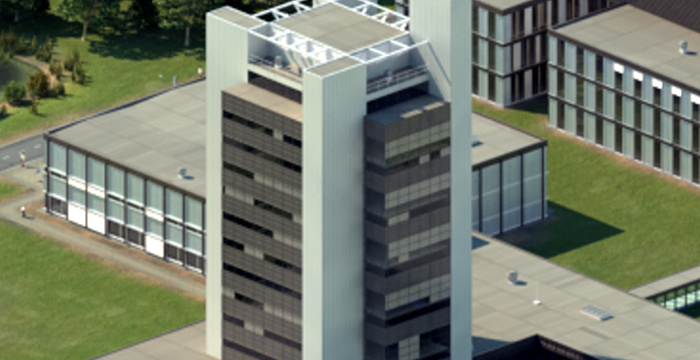Dr. Yashar Hajimolana is an assistant professor in Energy Systems Integration at the University of Twente, where he initiated and leads the Energy Systems Integration research theme within the Thermal and Fluid Engineering Department. His work focuses on sustainable energy solutions including energy hubs and hydrogen integration to drive decarbonization in industrial and transportation sectors. His approach integrates multi-energy carriers and sector coupling, exploring how these elements dynamically interact to enhance the adaptability, flexibility and efficiency of energy systems. A specialist in reversible fuel cell systems, he applies this expertise to applications like grid balancing and Power-to-X production, advancing energy storage and conversion technologies that support the transition to low-carbon infrastructures.
For current research activities, you can visit the group page: Energy Systems Integration
Expertise
Chemistry
- Hydrogen
- Metal
- Procedure
- Optimization
- Electrolyte
- Carbon Nanotube
- Nanoparticle
- Solid
Organisations
Research Focus:
- Fuel cell and hydrogen systems: Development of sustainable energy production through a range fundamental research, through modeling and experimental characterization of fuel cell and electrolysis cell components and research on system integration and demonstration. The aim is also to develop new and innovative smart energy system platforms based on fuel cells for different applications, such as stationary and transportation, including drones, ships, boats, heavy duty trucks and heating and cooling.
- Hybrid Energy System and Sector Coupling for Industry and Transport: Exploring the intricate dynamics of electricity, gas, and heat interactions, we develop strategies to balance supply and demand, optimize energy storage and conversion, and reduce inefficiencies. Through a multi-physics approach, we gain a comprehensive understanding of complex interactions, enabling accurate modeling, design, and optimization. Our research extends to advanced technologies for enhancing the efficiency of Combined Heat and Power (CHP) and Combined Cooling, Heat, and Power (CCHP) systems. This involves optimizing integrated power systems to maximize energy output while minimizing fuel consumption and emissions. Additionally, we investigate innovative heat recovery techniques, such as waste heat recovery from industrial processes or exhaust gases, to further improve overall system efficiency. Looking towards future energy scenarios, our focus shifts to systems capable of rapidly adjusting power, heat, or cold without generating pollutants, integrating seamlessly into existing networks to provide energy on demand. Through comprehensive experimental and modeling research, we aim to understand the physics of these processes and provide proof of concepts for sustainable energy solutions.
- Integration of power-to-X technologies within hybrid renewable energy systems: Sector coupling can play a key role in the energy transition towards an energy system fueled by renewable energy sources. Surplus electricity can be stored in the form of chemicals through the co-electrolysis of H2O and CO2. This opens the possibility to decarbonize industrial heating, chemicals, and sectors such as transportation. However, there is a lack of understanding of the design and techno-economics of Power-to-X conversion pathways. We work on providing a Power-to-X roadmap for the decarbonization of chemicals and energy systems through the results from detailed modeling and techno-economic analysis of the electrosynthesis of chemicals.
- Enhancing Circular Solutions through Energy Analysis and Optimization: Our focus lies in conducting energy analysis and optimizing circularity processes to enhance efficiency within the circular solutions framework. This involves a comprehensive analysis of energy flows throughout various stages of the circular processes, from material extraction to end-of-life disposal or reuse. We aim to identify opportunities for improvement and streamline processes to minimize energy consumption and maximize energy recovery. Additionally, optimization efforts involves the integration of renewable energy sources and energy-efficient technologies wherever feasible, further enhancing the overall sustainability of circular practices. Through rigorous energy analysis and optimization, we strive to ensure that the circular solutions achieve the highest levels of efficiency, contributing to both environmental conservation and economic viability.
Energy Systems Integration Lab
Publications
Jump to: 2026 | 2025 | 2024 | 2023 | 2022 | 2021
2026
2025
2024
2023
2022
2021
Other contributions
Research profiles
I am involved in University Twente/Vrij Universiteit Amsterdam Bachelor Program Mechanical Engineering Semester 2 (Energy Transition and Sustainability):
- Engineering Thermodynamics
- Project: focuses on analysis, development and optimization of a renewable energy system taking into account thermodynamics and life cycle analysis
- Energy System Integration, Master Program Sestainable Energy Technology
- Energy Conversion Technology for Master Program Sestainable Energy Technology
- Energy and Heat Transfer for Second Year Bachelor Program Industrial Design Engineering
Affiliated study programs
Courses academic year 2025/2026
Courses in the current academic year are added at the moment they are finalised in the Osiris system. Therefore it is possible that the list is not yet complete for the whole academic year.
Courses academic year 2024/2025
Projects:
- Minor in Sustainable Energ
- EU HERMES
- EU HERCULES- High-Temperature Thermochemical Heat Storage Powered by Renewable Electricity for Industrial Heating Applications
- MOOI-EIGEN: Energy hubs for the implementation of large-scale renewable energy
- ROGER - Integrated renewable energy systems for hydrogen production in congested transmission grids
- System design and optimization of an electrolyser connected to a wind turbine
- Smart Energy Grid in the Nijmegen Region
- BOOSTing cross-border hydrogen in industry, research and education
- H2-MODUS
- HYGENESYS-A CHALLENGED-BASED LEARNING COMMUNITY FOR HYDROGEN DEVELOPMENT AND APPLICATION
News on utwente.nl
- 1ST SMART ENERGY HUBS CONFERENCE HELD IN ENSCHEDE (Monday 25 November 2024)
- HOE KAN WATERSTOF HET OVERBELASTE ELEKTRICITEITSNET REDDEN? (27-09-2024)
- Waterstof: hype of hoop? (2023)
Address

University of Twente
Horst Complex (building no. 20)
De Horst 2
7522 LW Enschede
Netherlands
University of Twente
Horst Complex
P.O. Box 217
7500 AE Enschede
Netherlands